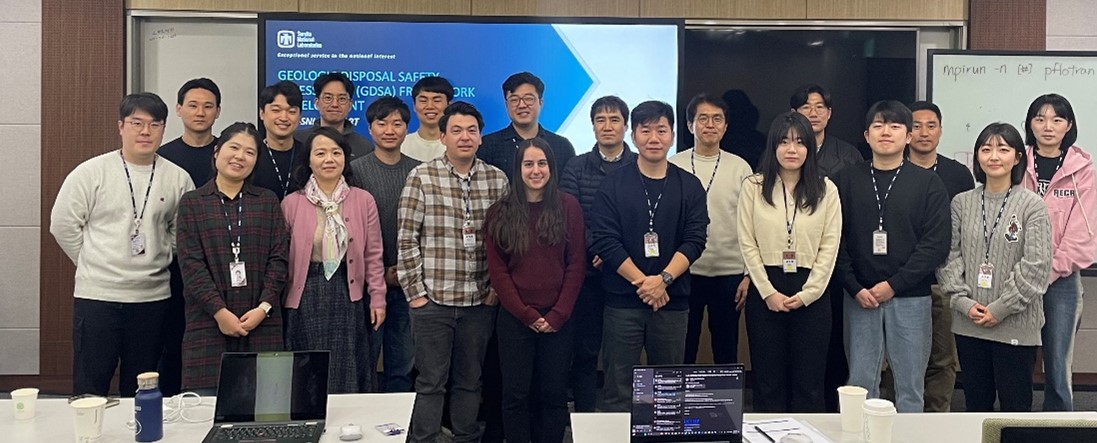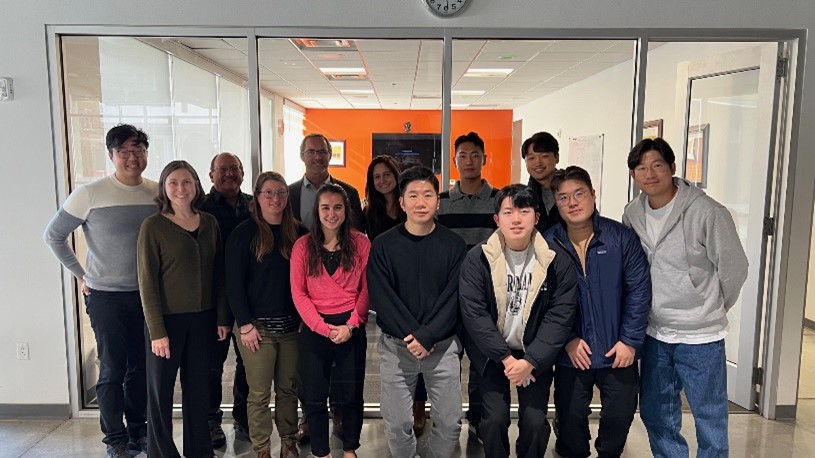
Sandia’s extensive experience in geologic disposal of nuclear waste is making global impacts.

Sandia is providing technical support to the Korea Institute of Nuclear Safety (KINS) to strengthen its capacity in regulating geological disposal of high-level radioactive waste (HLW). Drawing from Sandia’s expertise in developing license applications, safety cases, and performing post-closure safety assessments for the geologic disposal of spent nuclear fuel, HLW, and transuranic waste, this collaboration aims to facilitate the sharing of knowledge and best practices.
The technical support draws on decades of Sandia research and applied capabilities including as scientific advisor for the Waste Isolation Pilot Plant, Total System Performance Assessment, and research and development supporting the U.S. Department of Energy Spent Fuel and Waste Disposition (SFWD) Campaign. Sandia is also sharing their comprehensive approach to knowledge management focused on retention of tacit and technical knowledge.
Through Sandia’s technical support and guidance, KINS will be able to build its capacity in performing safety assessments for radioactive waste disposal in Korea using SFWD’s Geologic Disposal Safety Assessment (GDSA) Framework open-source software toolkit. The partnership is expected to benefit both KINS and Sandia by highlighting technical areas that require further development, refinement, or enhancement.
Jeheon Bang, the technical lead of this collaboration, shared his insights on the partnership with Sandia through the GeoDART project.
“In our partnership with Sandia National Laboratories through GeoDART, KINS is poised to substantially enhance our regulatory expertise in the safety assessment of deep geological disposal systems. This collaboration enables us to thoroughly understand the advanced Geological Disposal Safety Assessment Framework and to adopt its open-source software toolkit for developing a comprehensive performance evaluation system that aligns with Korea’s unique deep geological disposal system characteristics. By leveraging the extensive experience and knowledge exchange facilitated by this partnership, we aim to establish more precise and specific standards in regulating high-level radioactive waste disposal, ensuring that our approaches are innovative and in line with international safety standards,” says Bang.
In December 2023, KINS, Korea Institute of Geoscience and Mineral Resources, and Ulsan National Institute of Science and Technology participants traveled from Korea to Albuquerque, New Mexico to have a week-long technical exchange. The teams hope to continue technical exchanges throughout 2024 and potentially through 2027 to not only foster international collaboration, but also gain tangible benefits by actively using the software in specific scenarios.
Keywords:
- Energy
- Nuclear Energy
- Nuclear Energy and Fuel Cycle Programs
- Nuclear Energy Safety
- nuclear waste management
April 4, 2024